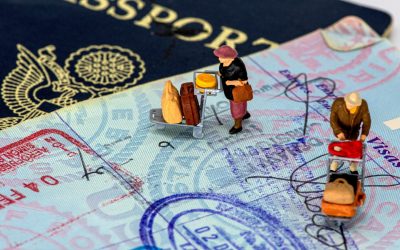If you live in Portugal or are considering relocating here, understanding the country’s tax system can significantly affect your annual tax bill. Whether you are a Portuguese citizen or a foreign resident, numerous lawful ways exist to reduce your tax liability. This guide shares nine legal tax-saving tips for individuals compliant with Portuguese law, helping you maximise deductions and make informed financial decisions.
9 Legal Tax Saving Tips for Individuals in Portugal
1. Claim Family-Related Deductions
Portugal offers generous deductions for dependents and ascendants.
- Dependents: €600 per child over 3 years old, €726 per child under 3, and an additional €900 for the second child and beyond up to 6 years old.
- Ascendants: €525 per qualifying parent or grandparent living in the same household (increased to €635 if only one qualifies).
These deductions can significantly reduce your tax payable for families with multiple dependents.
2. Take Advantage of Disability Benefits
If you or a dependent has a permanent disability of 60% or more (certified by a medical report), you can deduct substantial amounts from your tax:
- Individuals with disabilities: €2,090
- Disabled Armed Forces veterans: €2,612.50
- Dependents with disabilities: €1,306.25 each
Additional deduction of €2,090 for those with a disability of 90% or more, for assistance expenses.
3. Deduct General Family Expenses
Every taxpayer can deduct 35% of general household expenses (utilities, groceries, clothing, fuel) up to €250 per person (€500 for joint filers). Single-parent households benefit from a 45% rate up to €335.
4. Maximise Health Expense Deductions
You can deduct 15% of healthcare expenses up to €1,000 per household. Eligible expenses include medical consultations, treatments, surgery, medicines, glasses, dental work, and health insurance premiums. A doctor’s prescription is required for items taxed at the standard VAT rate (23%).
5. Use Education and Training Deductions
Education-related expenses, including school fees, textbooks, and tutoring, are deductible at 30% up to €800 per household.
Special provisions apply:
- If the student is in an inland or Autonomous Region, the limit rises to €1,000.
- For students living away from home (over 50 km from family residence), rent deductions of up to €400 annually can increase the total education deduction limit to €1,100.
6. Deduct Mortgage Interest and Rent
If your mortgage was signed before December 31, 2011, for your primary residence, you can deduct 15% of interest payments (limits vary by income level).
Rental payments for permanent housing are also deductible at 15%, with limits up to €900 for lower incomes.
7. Include Elderly Care Expenses
Expenses for nursing homes, assisted living, or in-home care for elderly or disabled dependents are deductible at 25% up to €403.75, provided the dependent’s monthly income does not exceed the national minimum wage.
8. Recover VAT Through the Invoice Requirement
By requesting invoices with your taxpayer number (NIF), you can recover part of the VAT paid in specific sectors:
- 15% of VAT on car repairs, hairdressers, restaurants, vets, and gyms.
- 100% of VAT on public transport passes and tickets.
- 35% of VAT on veterinary medicines.
The total benefit is capped at €250 per taxpayer.
9. Contribute to a Retirement Savings Plan (PPR)
Investing in a recognised retirement savings plan allows you to deduct 20% of contributions, subject to age-based limits:
- Up to €400/year (under 35)
- Up to €350/year (ages 35–50)
- Up to €300/year (over 50)
These benefits apply only if funds are withdrawn after age 60 and under qualifying conditions.
Tax Saving Tips for Individuals: Key Takeaways
Portugal’s tax system rewards families, encourages savings, and recognises healthcare and education as essential expenses. You can reduce your annual tax liability without stepping outside the law by keeping accurate records, requesting invoices with your NIF, and using legally available deductions.
If you are a foreign resident or considering moving to Portugal, working with a qualified tax advisor ensures you apply these tax-saving tips for individuals correctly, especially when combining them with international tax treaty benefits.
The founding of Madeira Corporate Services dates back to 1996. MCS started as a corporate service provider in the Madeira International Business Center and rapidly became a leading management company… Read more




